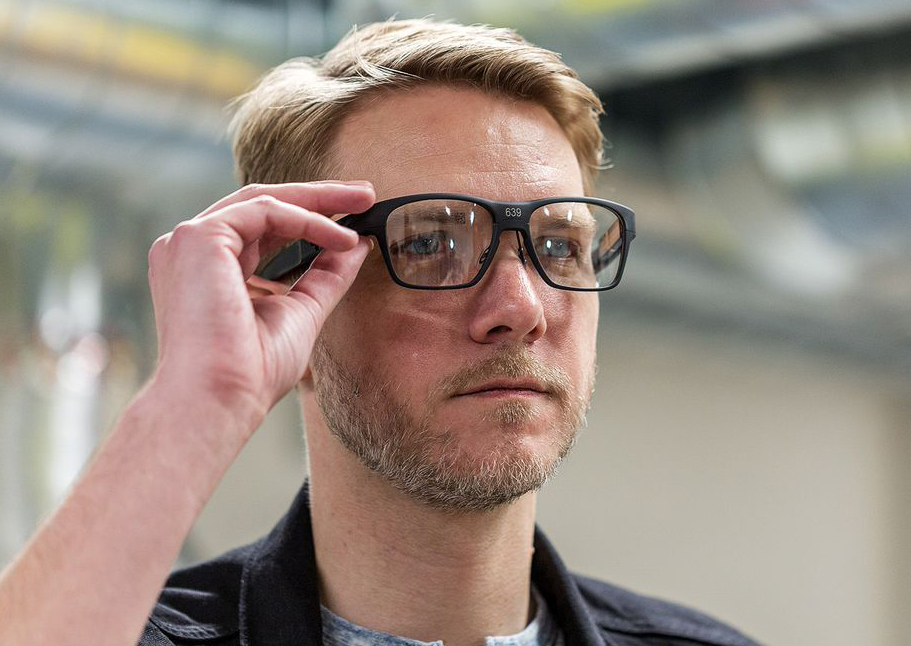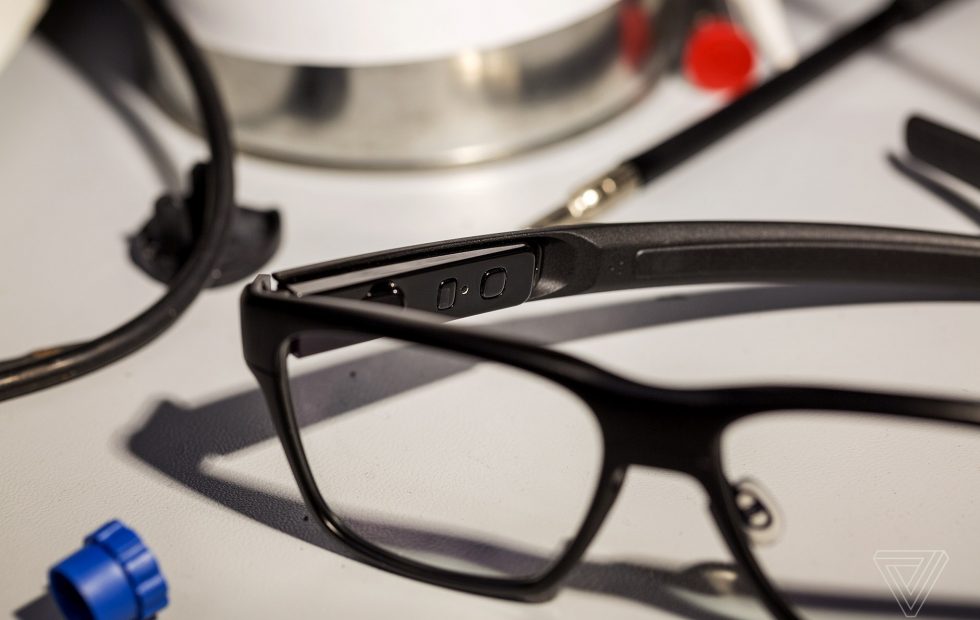Intel showed smart Vaunt glasses, which project a picture on the retina of the eye

Hardly in network information on that Intel is developing smart points, like browsers from The Verge has already tested them at business. Judging by first impressions, in Intel went from reverse and did Google Glass vice versa.
Laser Projector
Google Glass tried to jump over several stages of evolution and become glasses from fiction films that will be introduced to lens information about around the world, work as an interpreter and, of course To show more advertising. Intel Vaunt with using low-power and laser-friendly projected picture directly onto the the retina. And, the picture is the most primitive - monochrome text or icons with notifications from smartphone.
How it works
On paper it looks much less interesting, but on business like how it works. AT Intel argue that by projecting to retina, the picture is equally clearly seen by people with poor eyesight. AT The Verge confirms the operability of the system - the picture is clearly visible in lower left corner, but If you stop looking there, then nothing is you will see. At the same time, the eyes notice when something new appears: just a new message from not you will miss. The there are no glasses distracted from Everyday life.

What else interesting?
Vaunt Is a minimalistic tool for solving specific problems (albeit in Intel does not decided which ones). Therefore, in they do not have a video camera, headphones, gamepad or built-in miner. FROM this is the most ordinary glasses with flexible arms that fit comfortably on the head. Points are managed by an application for iOS or Android that supports communication with device by Bluetooth. Points work up to 18 hours from one charge. For comparison, the prototype of Google Glass did not more than 4 hours.
Prospects
Vaunt Is a prototype and about output to mass market speech is not yet goes. Plus in companies before end is not decided on target audience. Therefore, before end of the year Intel will send prototypes to Vaunt developers to get feedback, ideas and, possibly, software for them.
Source: The Verge